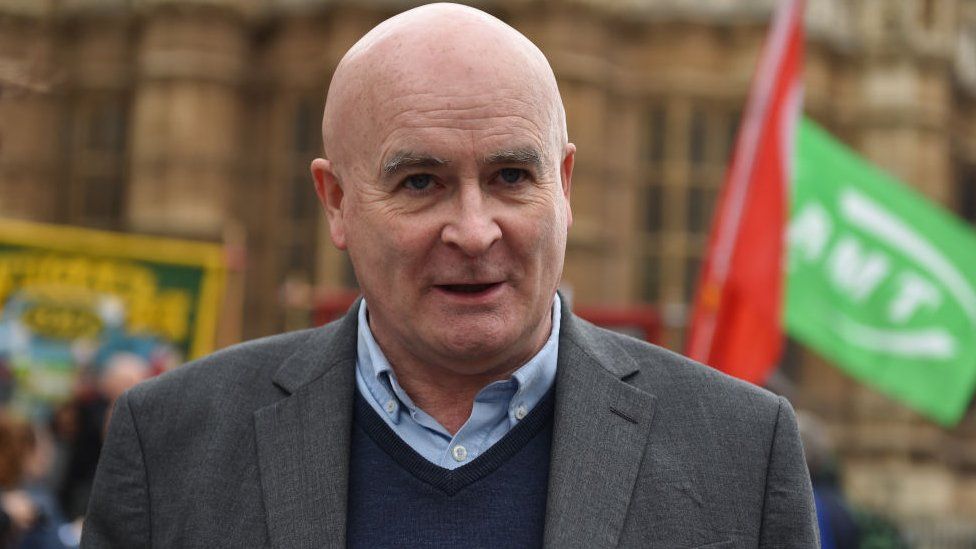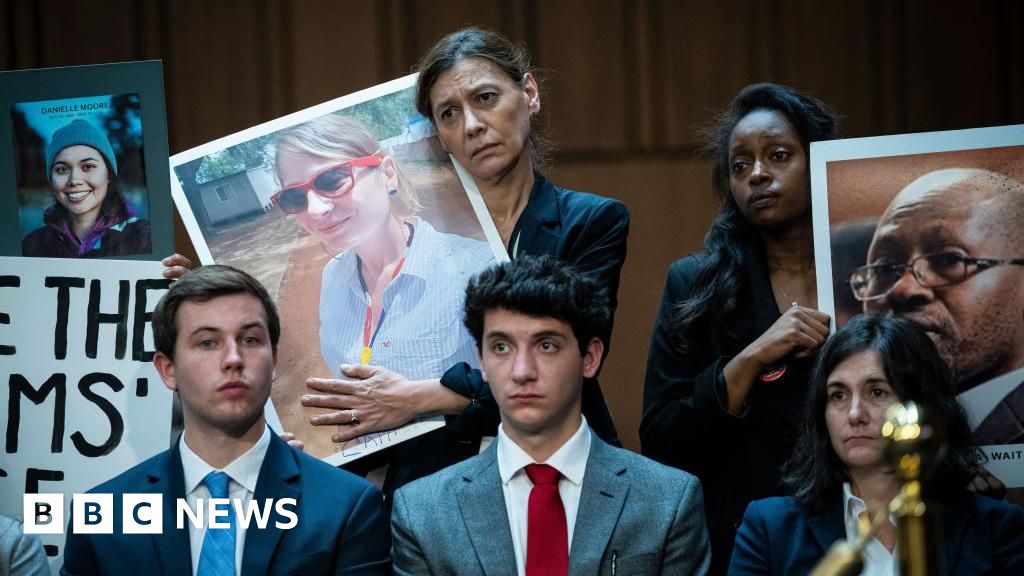ARTICLE AD BOX
 Image source, Getty Images
Image source, Getty Images
Mick Lynch is the general secretary of the RMT union
By Michael Race
Business reporter, BBC News
The boss of a rail workers union has said he is "not the Grinch" ahead of fresh strikes in the run-up to Christmas and after New Year.
Mick Lynch, general secretary of the RMT Union, said the latest walkouts would "show how important our members are to the running of this country".
Passengers are expected to face major disruption over the festive period.
The strikes will be staged across four 48-hour periods on 13-14 and 16-17 December, and 3-4 and 6-7 January.
Some 40,000 workers will walk out and there is likely to be disruption in the days around the strikes due to trains not being in the right places.
The walkouts will affect people travelling to see comedian Peter Kay's comeback shows in London and Birmingham on 16 and 17 December, as well as singer Paolo Nutini's gigs in Glasgow on 13, 14 and 16 December.
Hospitality businesses will also be hit, with the strikes happening in the busiest week of the year for the pub industry.
"Customers will be cancelling bookings and staying home, whilst staffing shortages will be exacerbated by a lack of transport options," said Emma McClarkin, head of the British Beer and Pub Association.
Members of the RMT Union are taking strike action after workers at Network Rail, which maintains the railways across Britain, and 14 train companies voted in a ballot last week.
Mr Lynch said the latest strikes would "send a clear message that we want a good deal on job security, pay and conditions".
"I'm not the Grinch," he said, referring to the children's book character who tries to cancel Christmas. "I'm a trade union official and I'm determined to get a deal."
The RMT union, which represents workers such as guards and signalling staff, has already held eight days of strikes since June which have caused widespread disruption.
Along with other rail unions, its members want pay rises in line with the surging cost of living. Inflation - the rate at which prices rise - hit 11.1% last month.
The rail industry is under pressure to save money after the pandemic left a hole in its finances and bosses say reforms are needed to modernise the railway and make pay rises affordable.
'We can see a deal'
The RMT announced its recent strike dates after claiming Network Rail had failed to make an improved pay offer during recent talks.
The Rail Delivery Group, which represents train companies, said that before negotiations broke down there had been "real progress" towards agreeing the "outline of a credible deal".
On Wednesday, its spokesman called on the union to come back to the negotiating table for the benefit of passengers travelling or shopping during the festive season.
The Department for Transport has criticised unions involved in the strikes, saying they put "the very future of the entire industry in jeopardy".
"We once again urge union leaders to work with employers and come to an agreement which is fair for passengers, taxpayers and workers alike," a spokesperson said on Tuesday.
Earlier this month, Rail Minister Huw Merriman estimated that strike action had cost the railways about half a billion pounds so far this year.

 2 years ago
42
2 years ago
42








 English (US) ·
English (US) ·